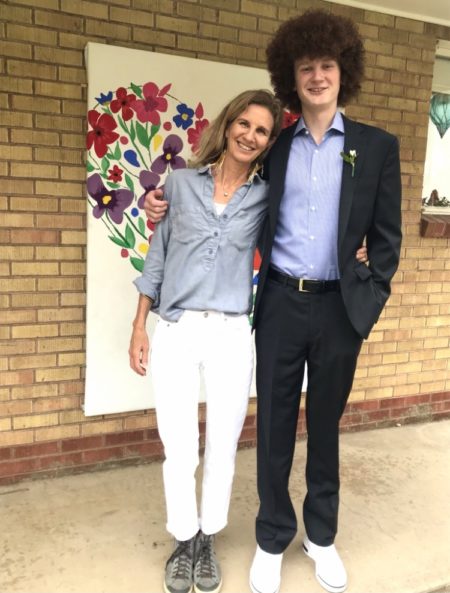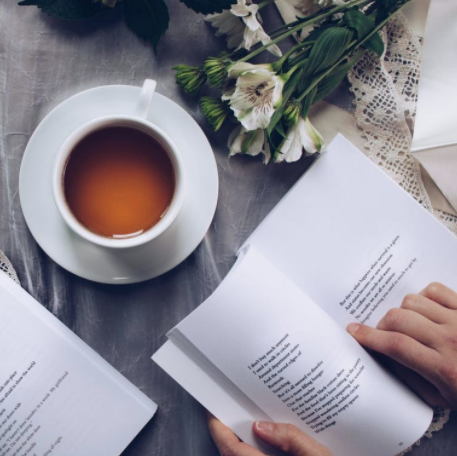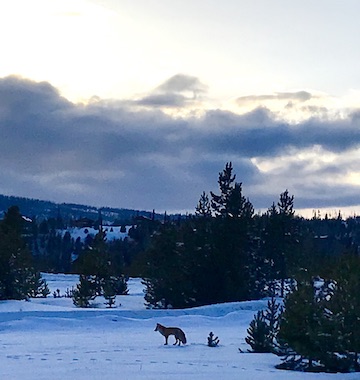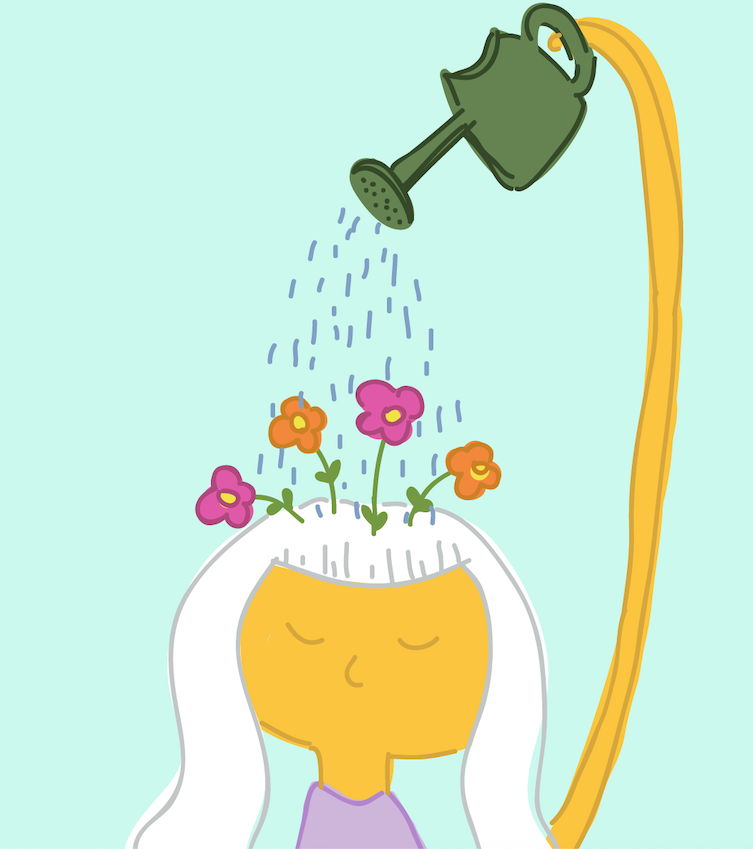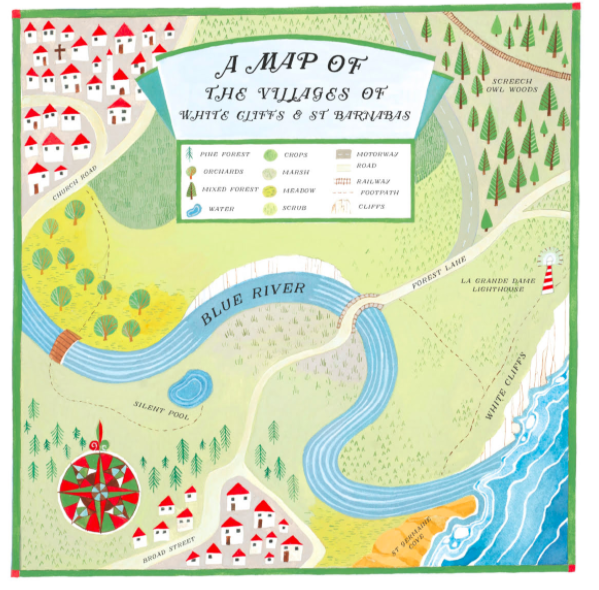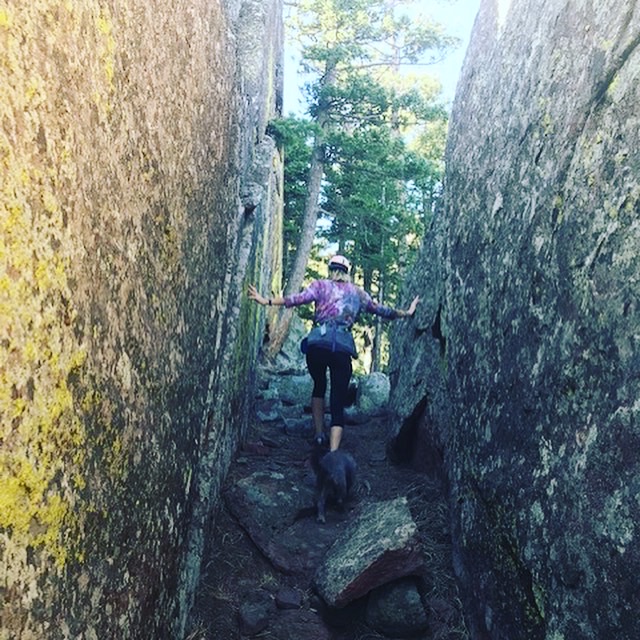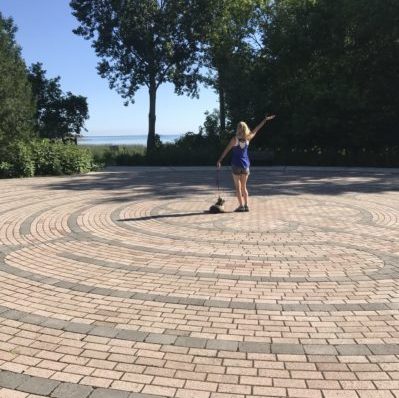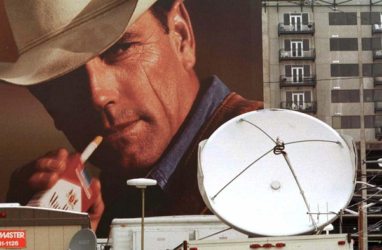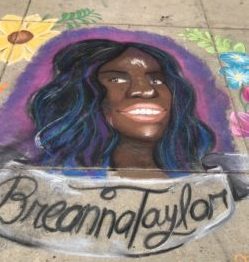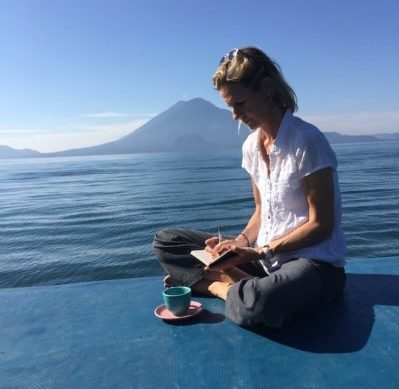Dear Cole,
I’m writing you from our front porch, on the eve of your high school graduation.
Life is not easy. You know that. You have lived that. It’s not about building a life that is easy–without pain or confusion–it’s about living life fully, completely, and compassionately. I know you can do that because you already have.
You have backbone in you now that will never leave you. You just have to talk to your courage, ask it for a clue as to what the next best step might be.
Talk to me, too, wherever I may be. As Anne Sexton, the poet, said to her daughter, “Talk to your heart. I am in it.”
I’ve lived a good life, a life full of adventure, and love. You can, too. Go for it! Risk discomfort for meaningful experience.
Do you remember how scary it was to disassemble your car and how fulfilling it was to put it back together, figuring it out as you went along? It’s not a bad analogy for how to make it through tough times.
Or do you remember the story about the time I was learning to surf and was embarrassed by how terrible I was? And how I didn’t want to tell anyone I was surfing until I got really good? And how, at a party with interesting, cool people, I went to shake a fascinating woman’s hand and just as I did, sea water streamed out my nose? I apologized and tried to explain that I had just been surfing, but not very well, and that I was sorry, and excuse me while I went to get a tissue. Do you know what the fascinating woman replied?
“When I see the surfers as I drive home from work at sunset, I think, what a beautiful painting! But you–you are not looking at the painting, you are in the painting. Don’t ever apologize for being in the painting!”
Aim for a life where you are in the painting–out in the world, trying things, throwing your whole, messy self into it, instead of waiting for mastery to begin.
There is a Taoist story of an old farmer and his son. Maybe you know it.
One day the farmer’s horse ran away.
“What bad luck!” His neighbors said.
“We’ll see,” replied the farmer.
The next day, the horse returned with three wild horses.
“How wonderful!” said the neighbors.
“We’ll see,” said the farmer.
Then the farmer’s son tried to ride one of the untamed horses, was thrown, and broke his leg.
“How terrible!” said the neighbors as they brought food and flowers.
“We’ll see,” said the farmer.
The next week, military officials came to the village to draft young men to the army. They saw that the son’s leg was broken, and passed him by. When his neighbors came around once again to say “What good luck!”
“We’ll see,” the farmer said.
Only time can tell the whole story. We never know whether something is good or bad luck when we are in a situation.
Trust that every time you’ve been challenged, you’ve learned something. When you broke your foot, you learned to beat Papa at chess. When I was diagnosed, you learned how to be a good friend to Joako. When Covid cancelled in-person classes, you learned to replace the clutch in your car. It doesn’t help to divide life into good and bad events, because we can’t see the future.
Experience life as it is and don’t fight the moments. Being an adult doesn’t just happen because you turn 18 or graduate. Adulthood is a process of becoming. You have to earn it by facing difficult times with openness and curiosity, not just fear.
At dinner table arguments with your sister, I see how often you are right. I also see how important it is for you to be right. Remember, don’t take yourself, or the world, too seriously. Go lightly. Practice being kind rather than right. It feels good to “win” an argument, but it feels better to boost others up and see them discover what is right for them.
Recently you spoke about your need to let go of trying to know everything. You said that you feel more comfortable in uncertainty now. The way you put it was, “it’s okay to wonder.” I love that. It reminds me of something the brilliant Toni Morrison said, “Meet the unfamiliar with unflinching friendliness.”
You are perfect now, you were perfect when you were born. It is okay to wonder. You don’t need to know everything, or to be right all the time, to earn love.
Papa and I love you unconditionally, Cole. Go into the world knowing that, and watch the way the world responds with love.
xox mama
more published letters:

